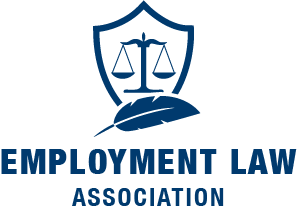EMPLOYMENT LAWS
Fair Labor Standards Act (FLSA)
The FLSA of 1938 is a federal law which establishes minimum wage, overtime pay, eligibility, recordkeeping and child labor standards that affect full-time and part-time workers in the private secotr and in federal, state, and local governments. Some states have their own minimum wage laws but they can only make the minimum wage higher than the federal minimum wage- they are not allowed to make it lower. A sort of exception to this is that employers of some kinds of employees, such as those that earn tips or commissions, might be allowed to use these earnings to make up some of their employees minimum pay.
The FLSA also gives employees the right to overtime pay at a rate of time and a half of their regular rate for any hours over 40 that an employee works in one week. There is no maximum to the number of overtime hours an employee can work and there’s no minimum or maximum days of the week an employee can work. If an employee works on a Saturday or Sunday and they have not already worked 40 hours that week, they are not entitled to overtime pay.
Family and Medical Leave Act of 1963
The US does not have laws that require employers to pay employees for medical leave but the Family and Medical Leave Act of 1963 says that employers with larger numbers of employees must offer employees up to 12 weeks of unpaid family leave. This leave can be used after the birth of a child, after an adoption, for the employee’s own health problem or to care for a family member that has a serious health problem.
TITLE VII of the Civil Rights Act of 1964
Title VII is a federal law that prohibits employers from discriminating against employees on the basis of sex, rac, color, nation origin and religion. It typically applies to employers with 15 or more employees, including federal, state and local governments.
Collective Bargaining
When employees organize to negotiate wages and other conditions of employment, it is called collective bargaining. The Clayton Act of 1914, the National Labor Relations Act of 1935, and the Labor Management Reporting and Disclosure Act of 1959 are regulators of collective bargaining. Employees have a right to organize collective bargaining with their employer(s). If more than 50% of an employer’s employees want to organize to bargain, the employer must negotiate with them in good faith.Safe Workplaces
Employers are obligated to provide safe working conditions for their employees. The Occupational Safety and Health Act of 1970 (OSHA) protects employees from foreseeable occupational hazards. It requires companies to monitor and regulate things that can be potentially harmful to employees such as the use of chemicals, extreme temperatures, noise, sanitation problems and conditions that have the potential to cause injuries.